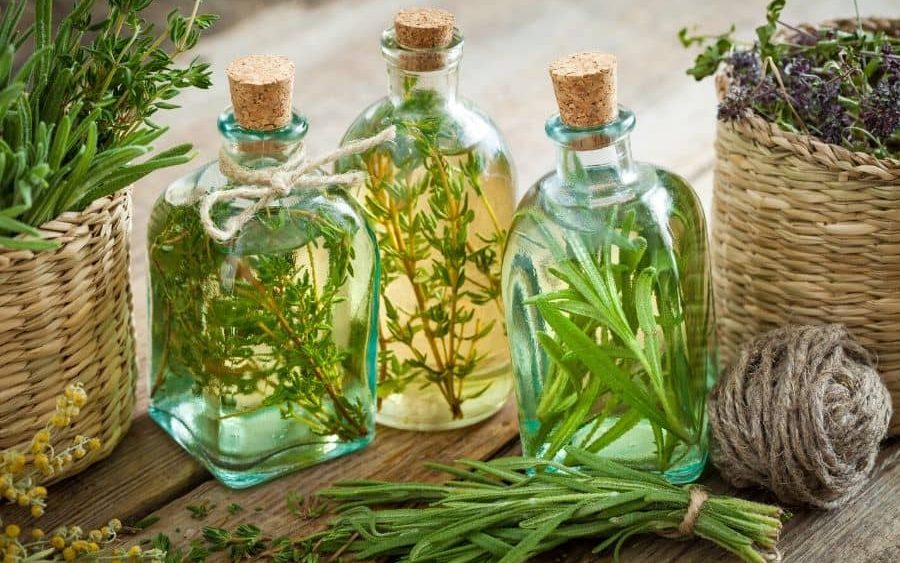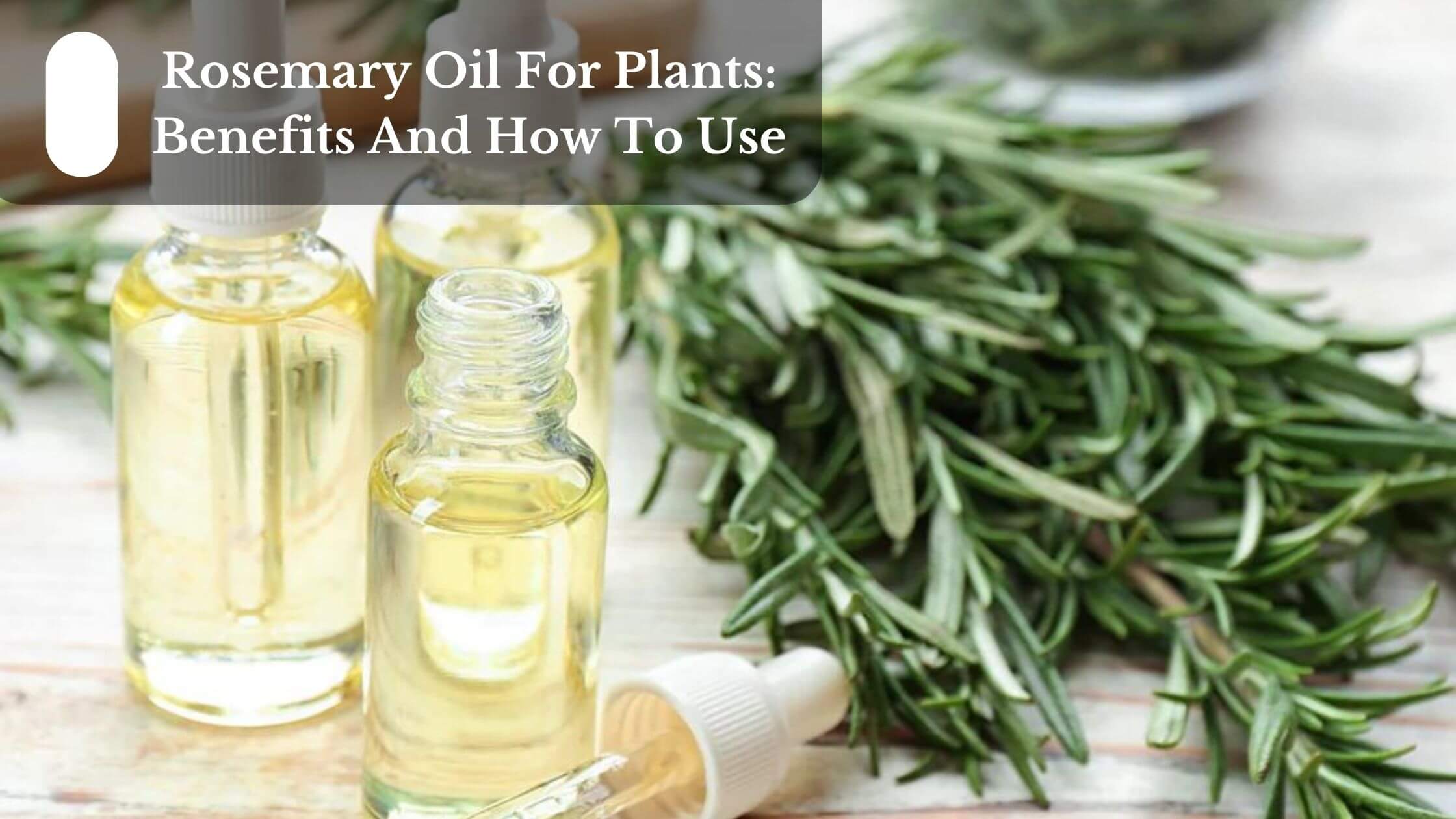Rosemary oil is the best natural herb to use for your indoor plants and can help them grow bigger, stronger, and more beautiful. If used correctly it will help the plant grow healthier than normal. It also helps with pests such as fungi, mites, insects, and mildew. This oil is very effective against mites and mold and it helps to keep the plant clean. It also helps with root growth and it can help a plant be more resistant against disease. It is also very effective against fungal infections on the plant leaves. Use the oil in its pure form for the best results! Rosemary grows like a bush or a tree (depending on how you choose to grow it) and produces beautiful white flowers that smell like pine needles.
You may also like:
This herb was believed to be able to heal many illnesses by the ancient Greeks, Egyptians, Romans, and Christians. It is one of the most popular herbs to use for its health benefits. Small amounts of this herb are known to aid in digestion and circulation, as well as to help relieve headaches. Rosemary also helps improve memory and acts as a natural insect repellent. Historically, rosemary was used in several things such as cooking, medicine (especially for melancholy), astringent, antiseptic, disinfectant, and even an aphrodisiac. To get the best results use the oil in its pure form from a reputable company or grower since they must care for their plants properly so it will create an effective product.
Benefits Of Using Rosemary Oil For Plants:
1) Getting Rid Of Pests
The best way to prevent pests from getting into your house is by using natural ways and the easiest one is using essential oils. Rosemary oil has been known as a natural pest repellent. It helps keep unwanted pests like mosquitoes away from your house and will also keep mites, fungi, insects, and mildew away too. This is very important especially in warm areas if you want to have clean air in your home or office. Once pests are prevented it’s easier for the plants to grow healthy thanks to the oil helping them fight disease, or to create new healthier leaves in case of fungal or plant-related infections.
2) Helping The Plant Fight Against Problems
Rosemary oil is a natural toxin that has been used for centuries to fight and kill disease. It has been found to keep the plant from getting diseases or fungal infections and it can help them fight off insects and mites.
3) Stronger Healthier Root Growth
Rosemary oil is known as a strong antioxidant. As it’s already been mentioned, rosemary oil also helps keep your house clean by keeping the air free of pests and thus keeps you safe from inhaling harmful chemicals. Rosemary’s strong smell eliminates unwanted airborne diseases, fungi, insects, mites, mosquitoes, and other pests that can affect your health.
4) Improving Root Growth
Rosemary oil also helps improve your plants’ root growth. This is especially important in the winter months when temperature drops and air starts getting polluted. It can help them have more roots, thus helping them stay healthier.
5) Improving Overall Health
As mentioned above, rosemary oil is known to be a strong antioxidant to protect the plant from disease or other harmful things such as fungi, insects, spider mites, molds, and mildew. It also helps to stop diseases by killing the source of it.
6) Enhancing The Ability Of The Plant
Rosemary oil has been known to help plants have better growth and stronger healthier leaves. It can even help them become more resistant to diseases.
7) Preventing Dust And Bacteria From Entering Your Home
Some people say that rosemary oil can also be used to prevent food spoiling and it will prevent any dust from entering your house.
8) Improving Your Indoor Air Quality
Rosemary oil (when used correctly) can also help improve the air quality in your home or office since it is an antiseptic. When you use rosemary oil properly, it will keep the pests or airborne diseases away, thus improving the general air quality of your home or office.
How To Use Rosemary Oil For Plants?

Step 1: You’ll need some rosemary oil (if you are using the fresh herb then you’ll need 1 cup of dried rosemary).
Step 2: Add the rosemary to a bowl or pot.
Step 3: Pour a small amount of olive oil on top and then add water.
Step 4: Place this pot over a stove or make sure that the outside area is clean and well-ventilated.
Step 5: Bring to a boil and let it simmer for up to 25 minutes. After it has reached boiling point, turn off the heat and let it cool. Then strain the rosemary water through cheesecloth or even better, an actual coffee filter for better results.
Step 6: Pour the rosemary oil with water in a spray bottle. Spray your plants once every week. Make sure you use at least 3 sprays or more per plant for best results!
You may also like:
Here’s a tip – use a fan after spraying so it can go straight to the leaves as it evaporates (you don’t want to waste any good oil). This is because when you spray the oil, it will raise the humidity within the pot and help the leaves open up so they can absorb all of that fresh and tasty oil. Don’t worry, this method won’t hurt your plant, as long as you let it dry (don’t keep it humid) after spraying some rosemary oil on them.
FAQs:
1) What are the main ingredients of rosemary oil?
Rosemary oil is made up of a variety of different chemical components which are known as monoterpenes. These include alpha-thujene, beta-pinene, camphene, sabinene, myrcene, citronellol and geraniol. These compounds make up about 97% of the total composition while other organic materials account for the remaining 3%.
2) How does rosemary oil work?
Rosemary oil helps plant growth by keeping them healthy. It is widely known to help repair and even heal wounds and blisters. Rosemary oil has been known to stimulate hair growth, help treat skin diseases, and even fight cancer cells. It also helps improve your overall blood circulation by cleaning the blood vessels of any dirt, toxins, unwanted particles, or bacteria that may be within your system. Most importantly, rosemary oil, as mentioned above, helps protect plants from all sorts of harmful infections and diseases which ensures a better survival rate for your homegrown plants.

